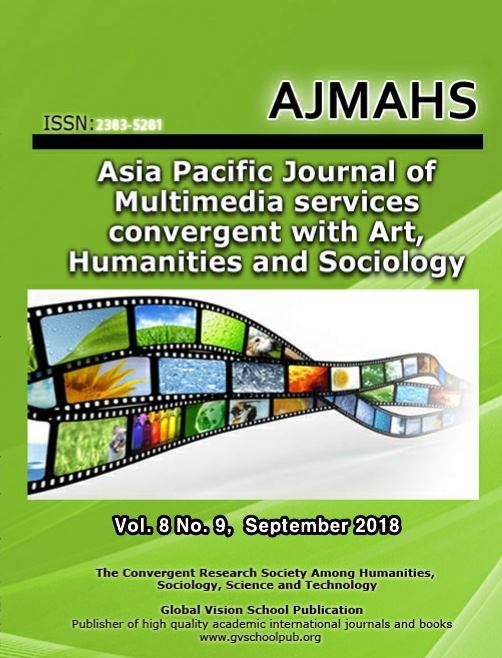학습장애 학생의 글쓰기에 나타난 메타언어 분석
An Analysis of the Meta-language in the Journal Writing of Students with Learning Disabilities
- 인문사회과학기술융합학회
- 예술인문사회융합멀티미디어논문지
- 8권 9호
-
2018.09297 - 304 (8 pages)
- 189

이 연구에서는 학습장애 학생의 메타언어 어휘 정도를 파악하기 위해 이들의 비실체 명사 및 인지동사의 표현정도를 살펴보았다. 연구를 진행하기 위해 일반 초등학교에 재학 중인 학습장애 학생 98명의 쓰기에 나타난 비실체 명사 및 인지 동사 어휘 유형 및 정도를 분석하였다. 분석방법은 김지은(2010)의 비실체 명사 분석과 황순희(2010)의 인지 동사 어휘 분석을 활용하였다. 메타언어 분석 결과, 학습장애 학생의 비실체 명사는 추상물-시간 표현이 49개(33.1%)로 가장 많은것으로 나타났으며, 추상-사태-사건 표현이 44개(29.7%)로 다음으로 많이 나타났다. 추상물-시간 어휘표현의 예로 저, 고학년 모두 ‘시간’표현이 공통되게 나타났다. 추상-사태-사건 어휘 표현의 예로 저, 고학년 모두 ‘생각, 걱정, 운동’과 같은 어휘가 공통되게 나타났다. 추상-추상관계 표현의 경우 인과, 시간, 공간에 대한 어휘가 비슷하게 나타났다. 또한 학습장애 학생의 인지 동사는 ‘생각하다(124개, 34.5%)’, ‘알다(121개, 33.6%)’, ‘판단․평가하다(112개, 31.1%)’순으로 나타났다. 이들의 인지 동사는 지각동사에서 확장된 어휘인 ‘보다’가 가장 많이 나타났으며, 보다 추상적인 사유동사는 그보다 적게 나타났다.
This study The present study examines the expression level of non-substantial nouns and cognitive verbs used by learning disabilities. The study analyzed the lexical types and frequencies of non-substantial nouns and cognitive verbs present in the journal writings of 98 with learning disabilities attending elementally schools. The lexical analysis of non- substantial nouns referred to the study of Kim, Ji-eun (2010), and the lexical analysis of cognitive verbs referred to that of Hwang, Soon-hee (2010). As an example of abstraction object-time nouns expression, the expression of time is common in both upper and lower grades. As an example of abstraction-situation-event nouns expression, both upper and lower-level words such as thought, anxiety, exercise appeared in common. As an example of abstraction-time nouns expression, the expression of time is common in both upper and lower grades. Abstraction-situation-event nouns As an example of expression, both upper and lower-level words such as thought, anxiety, exercise appeared in common. Abstraction-abstraction relationships nouns expressions have similar vocabulary to causal, time, and space. Furthermore, the cognitive verbs used by learning disabilities more frequently expressed ‘thinking (TS=124, 34.5%)’, ‘knowing (TS=121, 33.6%)’ and ‘Judge Evaluate (TS=112, 31.1%)’. ‘Seeing’ a word expanded from a cognitive verb, was the most frequently used cognitive verb, whereas more abstract thought verbs were less frequently used.
1. 서론
2. 연구방법
3. 결과
4. 논의
(0)
(0)